In Somali region of Ethiopia, surgery brings relief to farmer with trachoma
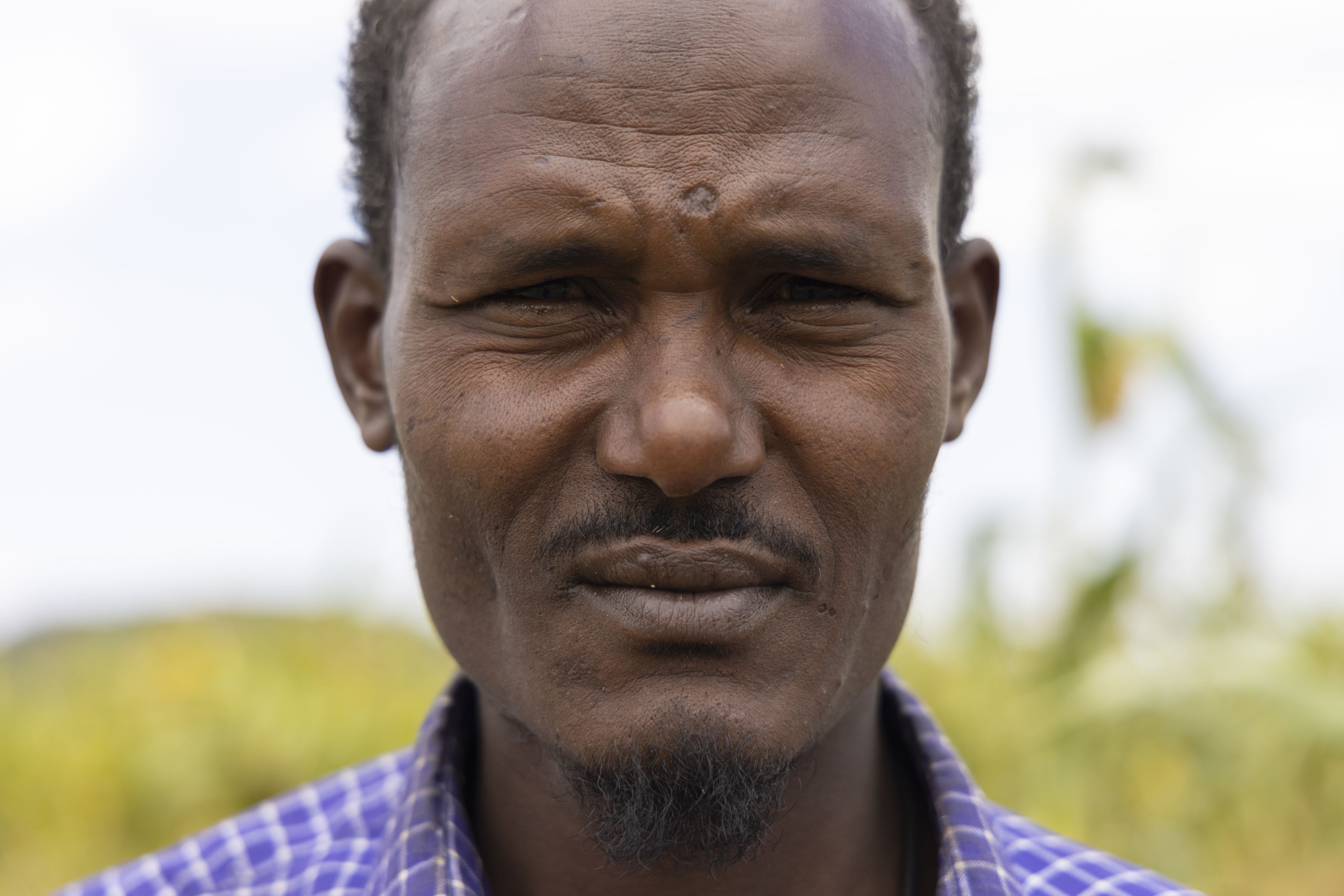
“I pull out my eyelashes every six months. I use a mirror to help me tug my eyelashes with my nails.”
October marks the end of the rainy season in the Somali region of eastern Ethiopia. For many, the end of the rains also means the beginning of the harvesting season. Sorghum, a cereal grain, dominates the landscape. The region is rapidly drying as the heavy rains of the springs recede, creating an agricultural paradise. For sorghum farmers like Feysel Abdullahi Samatar 30, the seasonal change means a return to the fields.
Though his expert hands make quick work of the harvesting, the return to the sun brings an all too familiar, yet persistent discomfort. More than 15 years ago, Feysel began experiencing pain and tearing when exposed to the sun. While he worked through the discomfort, his eyesight continued to deteriorate.
“There is no other way that I can remember myself. My eyes had always been watery since I was a young child, but I never tried the treatment as I couldn't afford it,” says Feysel.
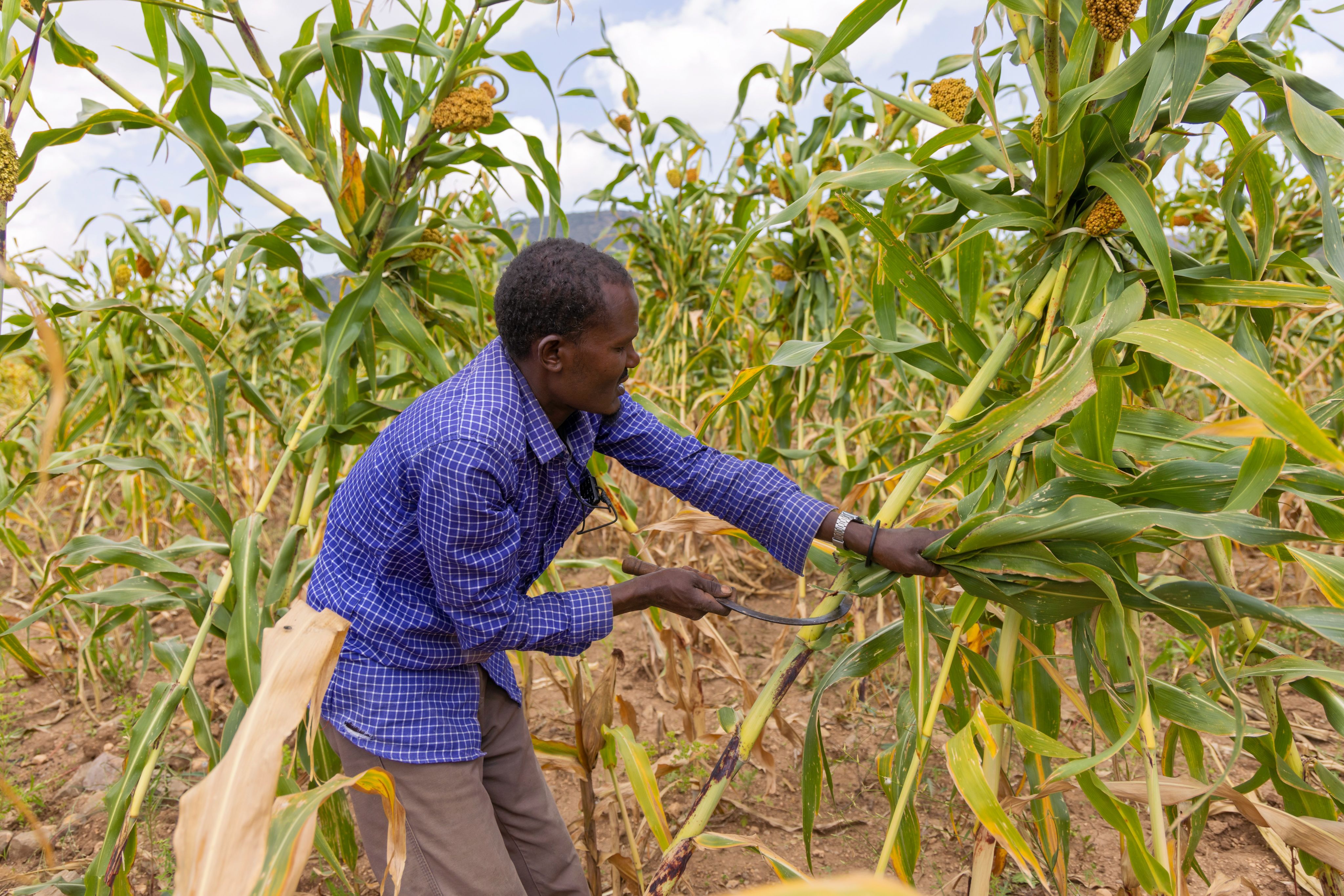
Feysel harvests sorghum from his farm. He lives in Darimi, Tuli Guled district with his wife and seven children. Photo credit: Meseret Argaw
Feysel harvests sorghum from his farm. He lives in Darimi, Tuli Guled district with his wife and seven children. Photo credit: Meseret Argaw
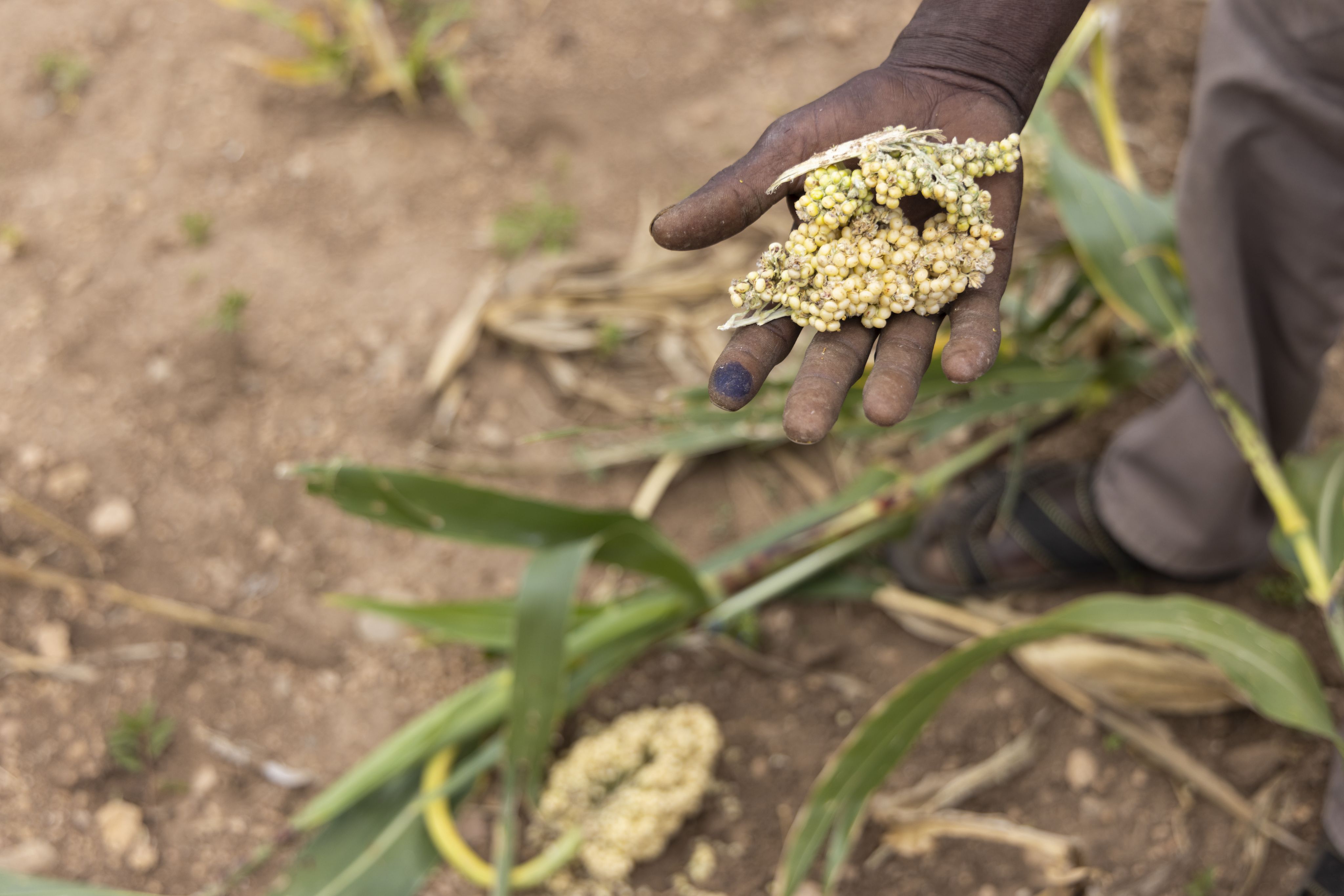
Feysel Abdullahi, 30 has more to deal with than just trachoma. Wild boar raid his sorghum field. He spends his nights at the farm making rounds to protect it from boars. Photo credit: Meseret Argaw
Feysel Abdullahi, 30 has more to deal with than just trachoma. Wild boar raid his sorghum field. He spends his nights at the farm making rounds to protect it from boars. Photo credit: Meseret Argaw
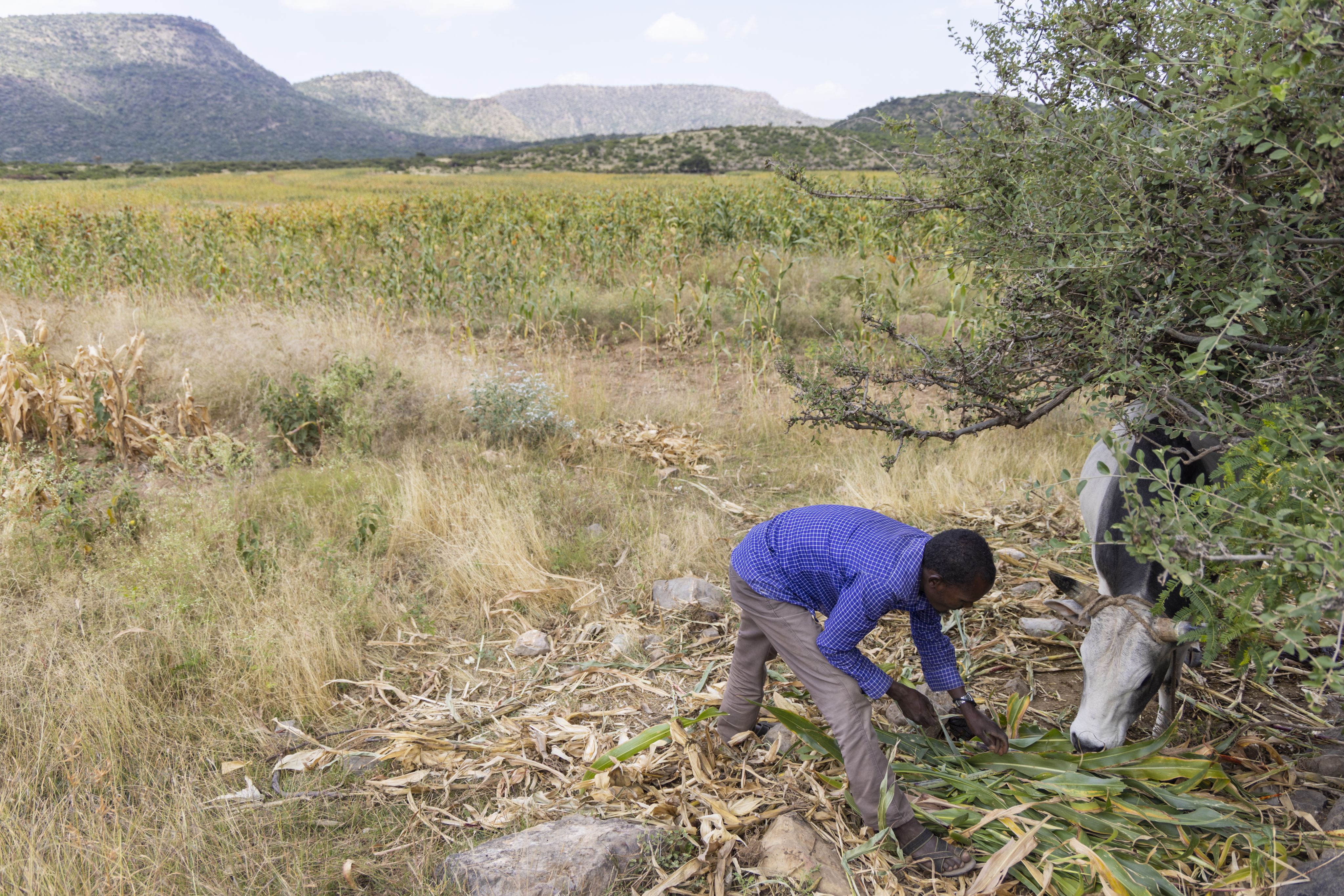
Feysel anxiously waits at the Darimi Health Center for his TT surgery. Although nervous, he is happy to finally receive his surgery and excited to return to his farm without the weight of his disease looming over him. Photo credit: Meseret Argaw
Feysel anxiously waits at the Darimi Health Center for his TT surgery. Although nervous, he is happy to finally receive his surgery and excited to return to his farm without the weight of his disease looming over him. Photo credit: Meseret Argaw
Consistent contact with common houseflies, which feed on mucus and discharge, gravitate to the eyes. Contact with eyes transfers the infection of the trachoma bacteria. According to Amref Africa, because of insufficient hygiene like face and hand-washing, the infection can quickly spread through tight-knit communities and families.
Living almost perpetually with the infection in both eyes for over 15 years, Feysel’s trachoma has reached the stage that his symptoms can only be relieved through surgery.
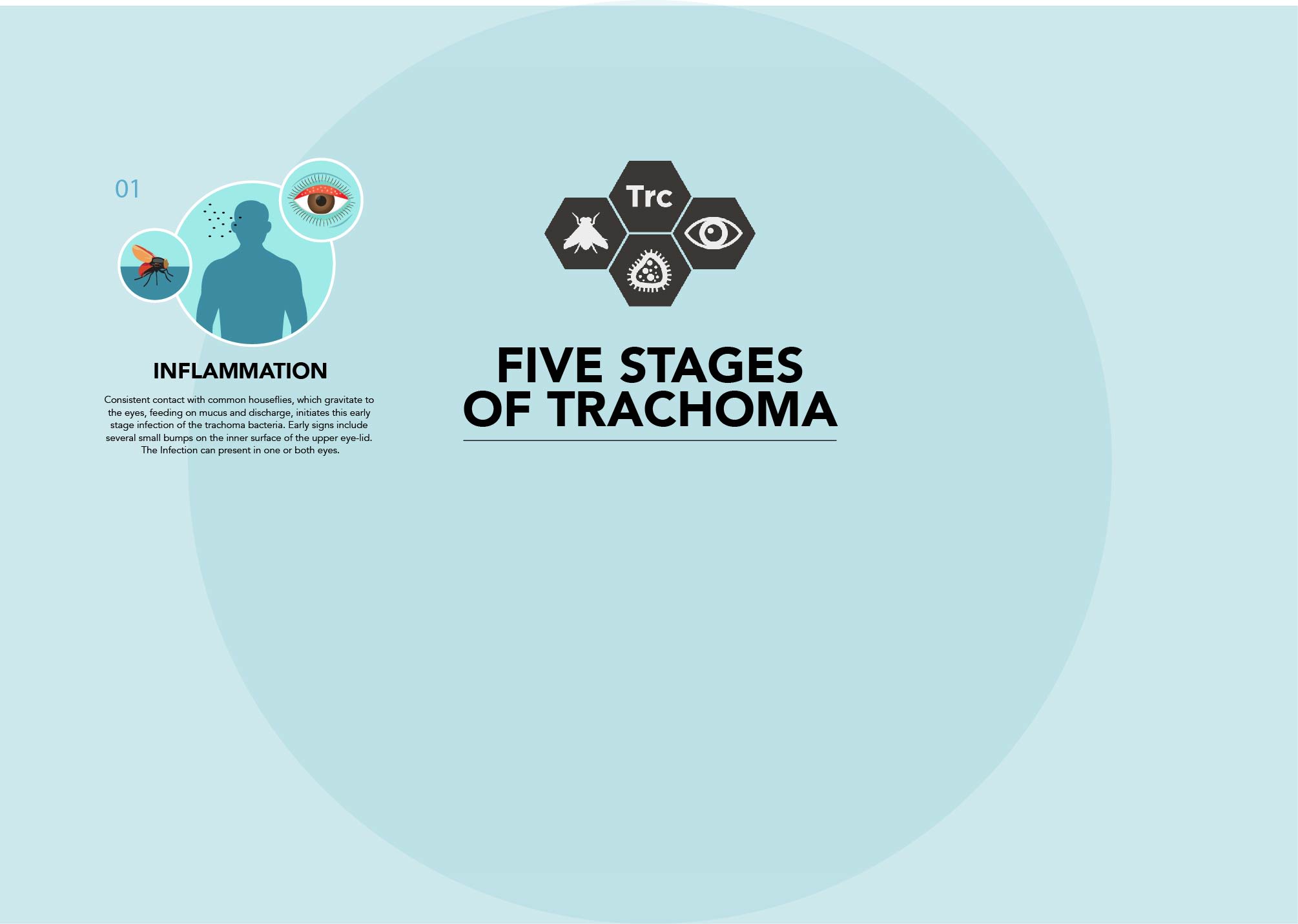
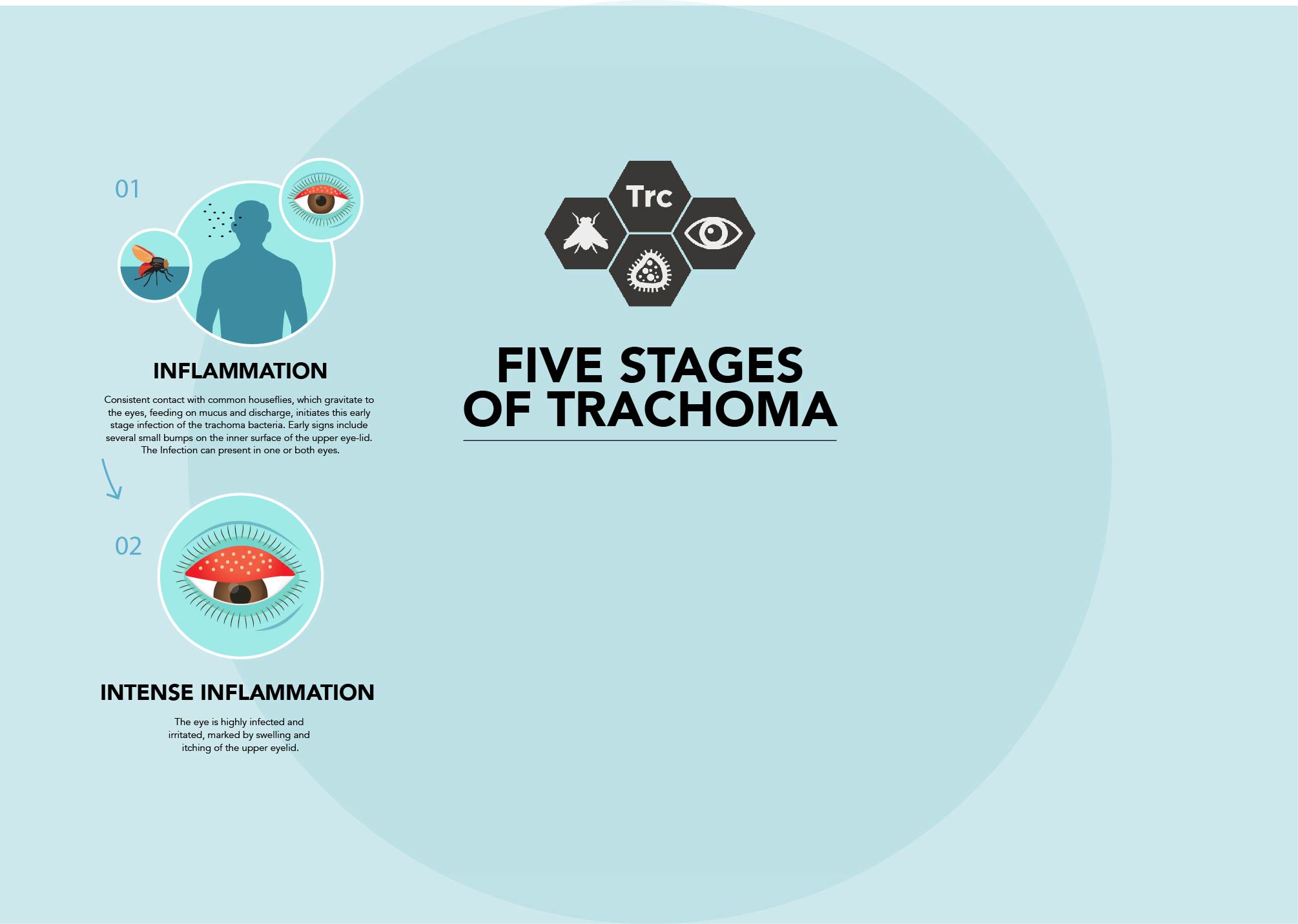
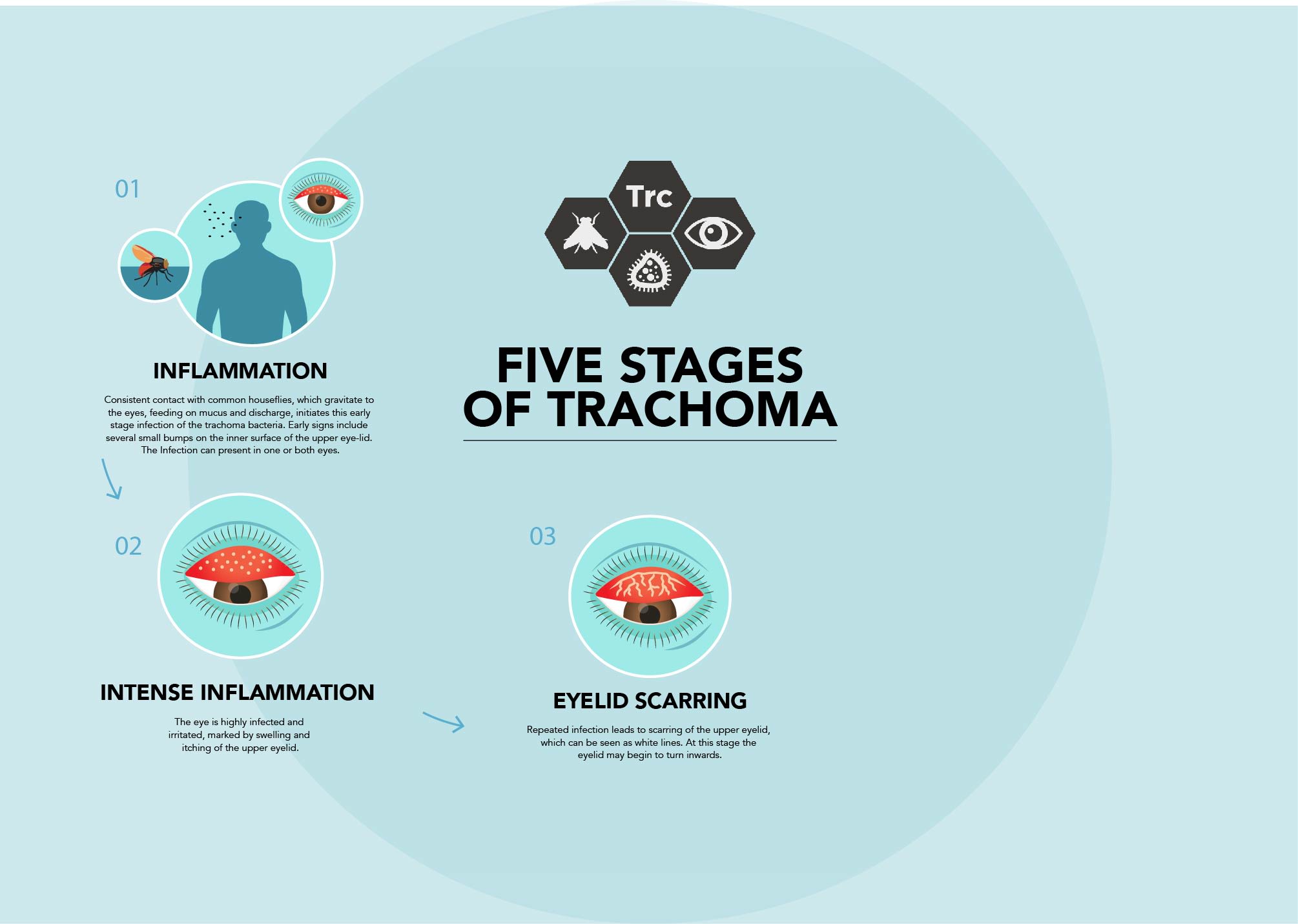
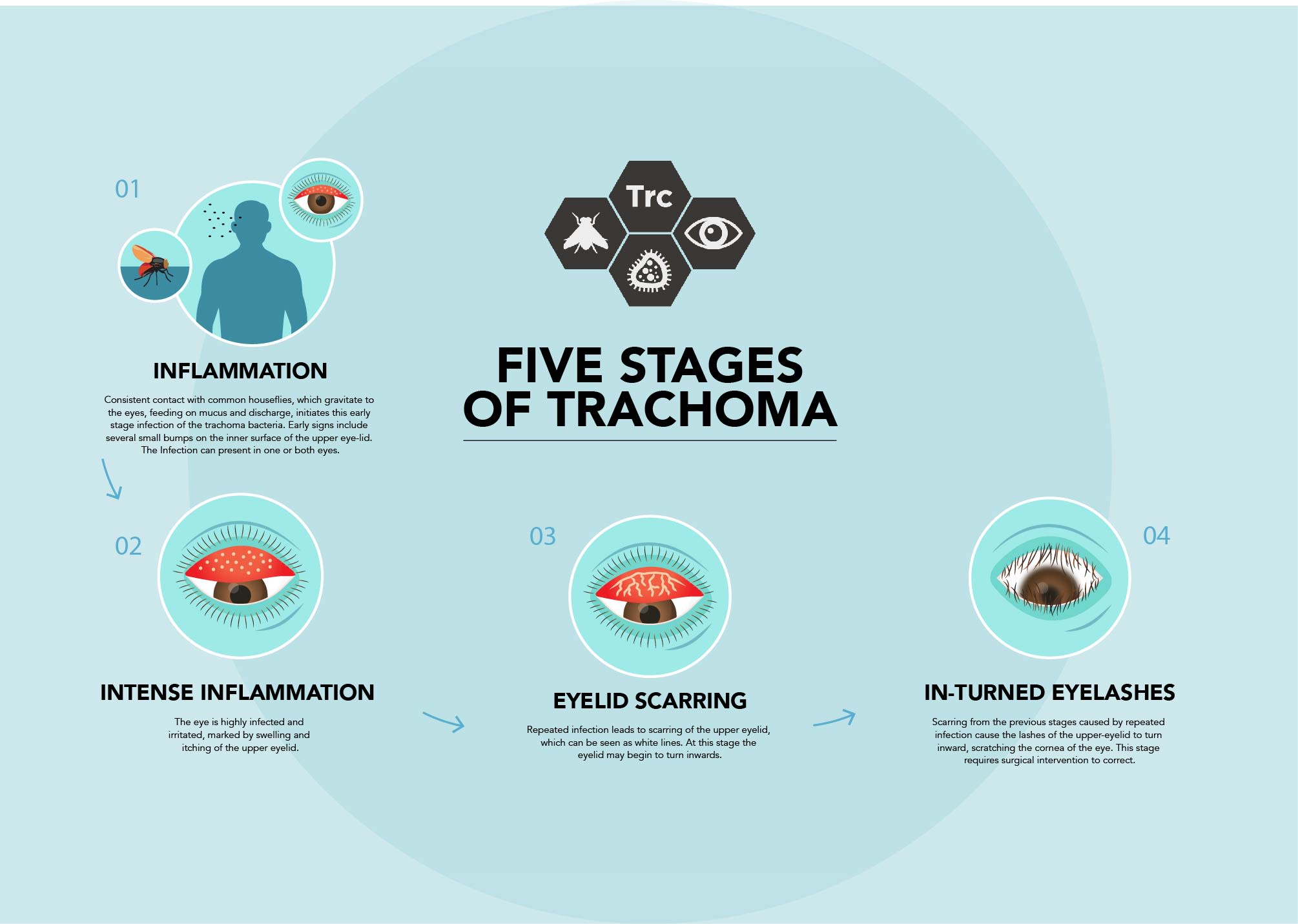
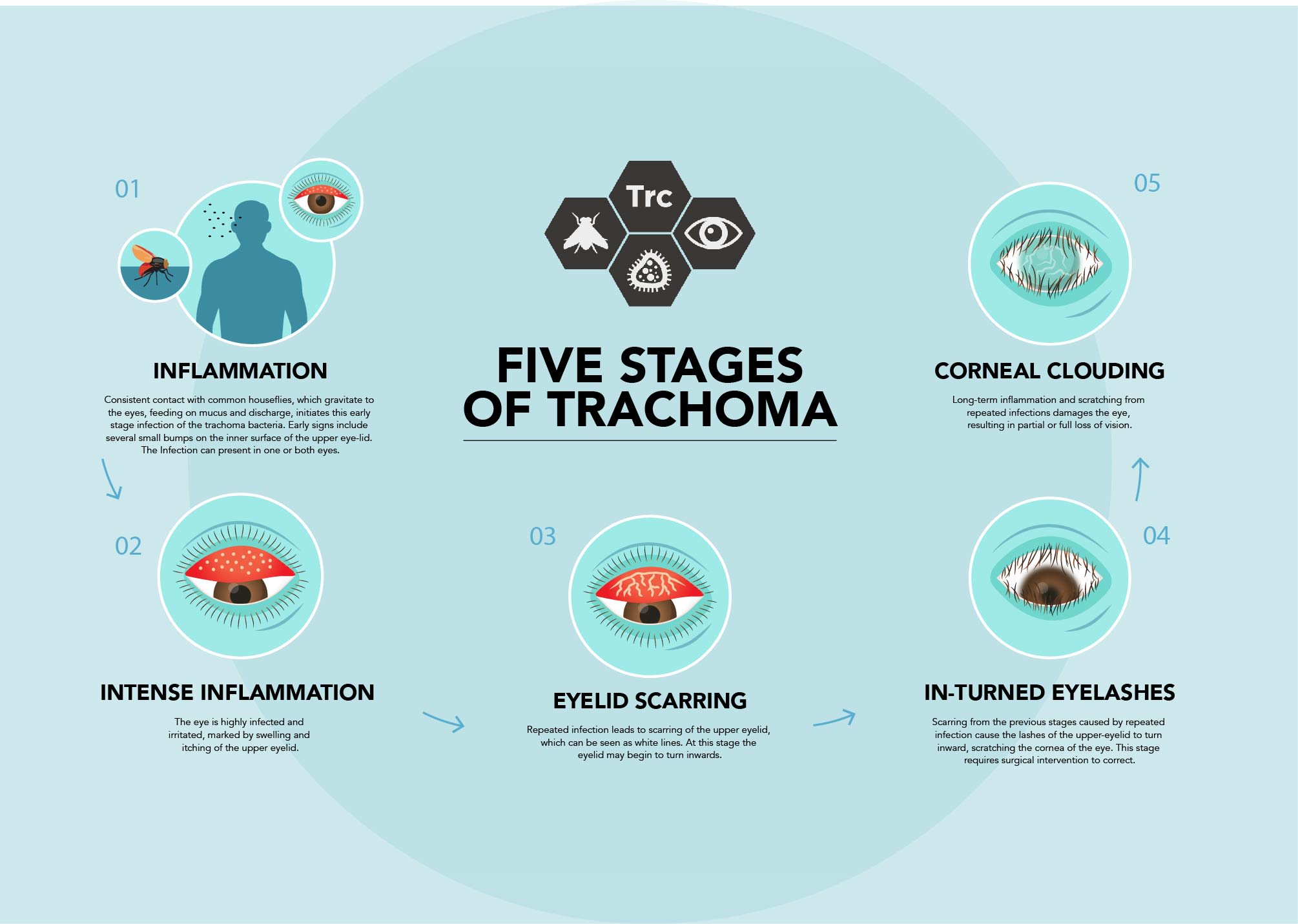
“I didn't have enough money to spend on anything other than what my kids needed. Even though it is challenging, I still strive to complete my work because it is something I have dealt with since I was a young child. My eyelashes itch and hurt a lot as the problem developed, which tears my eyes. Being in the sun also makes it difficult for me to perform my work on the farm.”
He requires a trachomatous trichiasis (TT) surgery. The scar tissue from the prolonged infection has tightened the inside of the eyelid, pulled his eyelashes inward, scratching the cornea with each blink.
“I pull out my eyelashes every six months. I use a mirror to help me tug my eyelashes with my nails,” Feysel says when considering how he deals with the symptoms.
Although the surgery is simple, bringing a surgeon and medical supplies to the remote region is difficult. Over 50 kilometers of unpaved roads connect Darimi, Tuli Guled district and the closest city, Jigjiga, capital of the Somali region. During the three months of the rainy season each year, the roads muddy, making them all but impassable.
Trained community health workers must travel door-to-door, often on foot across farmlands and pastures, to examine and report patients like Feysel. According to Amref Africa, there are an estimate of over 6,500 backlogged patients waiting for their surgeries in the Somali region.
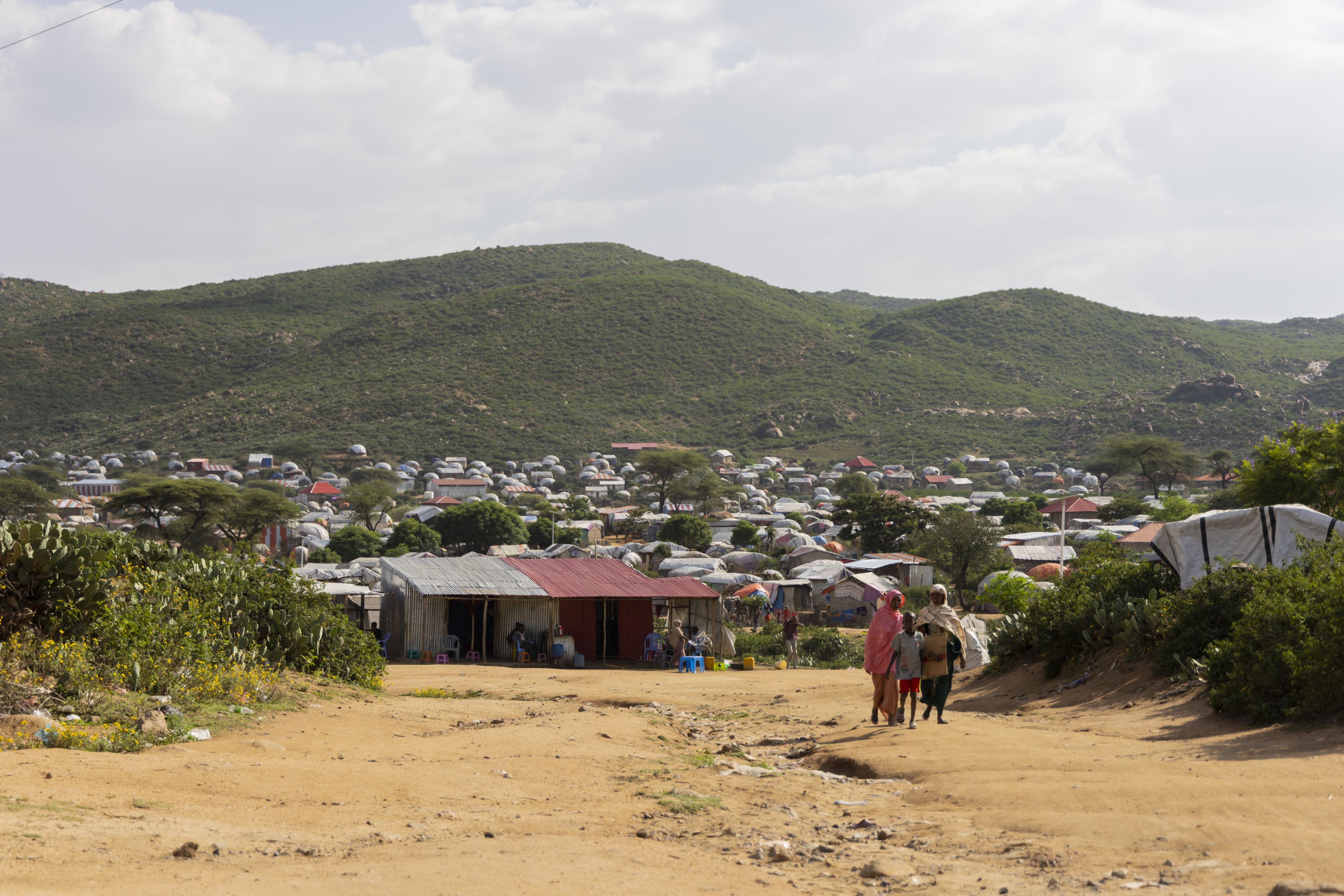
“There is no infrastructure. There are no roads. For older and disabled patients we sometimes have to perform the surgery in their homes. And for homes we haven’t reached, there is no social awareness of the disease because there is no health extension in the areas, which is where we still find resistance [to treatments],” said Liben Omer Farah, a TT surgeon in the area.
Liben is based out of the Bombas Health Center, 50 kilometers west of Jigjiga. In his trained hands, close to 600 patients have been treated over the past three years.
The procedure is simple, lasting roughly 20 minutes - a small incision is made on the eyelid so that the angle of the eyelashes can be reoriented outward. In a given week Liben can complete upwards of 21 TT surgeries - both a compliment to his skill and a growing eagerness in the region to accept the surgeries.
In Ethiopia, trachoma remains a serious public health risk. Trachoma is the second most common cause of blindness behind cataracts, and still remains a serious public health issue, especially among children. In 2023, 89% of the population were living in areas with high risk of the disease.
“Two years ago, people didn’t know much about [the disease], perpetuating a lot of resistance [to the treatments]. But [residents of the region] have grown accustomed to the surgery,” said Liben.
While surveying, the determining factor in the need to continue preventive mass drug administrations is ongoing, Liben and other health workers in the region have already noted the dramatic shift in trachoma awareness within many communities, signaling the preventive campaigns from organizations like Amref Africa have been finding success.
Hygiene habits like face and hand-washing must also improve before elimination goals in the Somali region can be met, however. During programs like the TT surgery campaign, health workers also disseminate information about safe hygiene habits, which are imperative to the prevention of trachoma. Veteran TT surgeon, Ahmed Yusuf Egge, notes the presence and vigilance of the health care workers has dramatically shifted attitudes about the surgeries.
Although the pilgrimage for surgeons to villages like Darimi - a turbulent three hour ride from Jigjiga is both tedious and occasionally treacherous - it is critical in challenging trachoma’s foothold in the region. As Ahmed prepares his station, villagers begin to flock to the health center, all with the same eye discomfort.
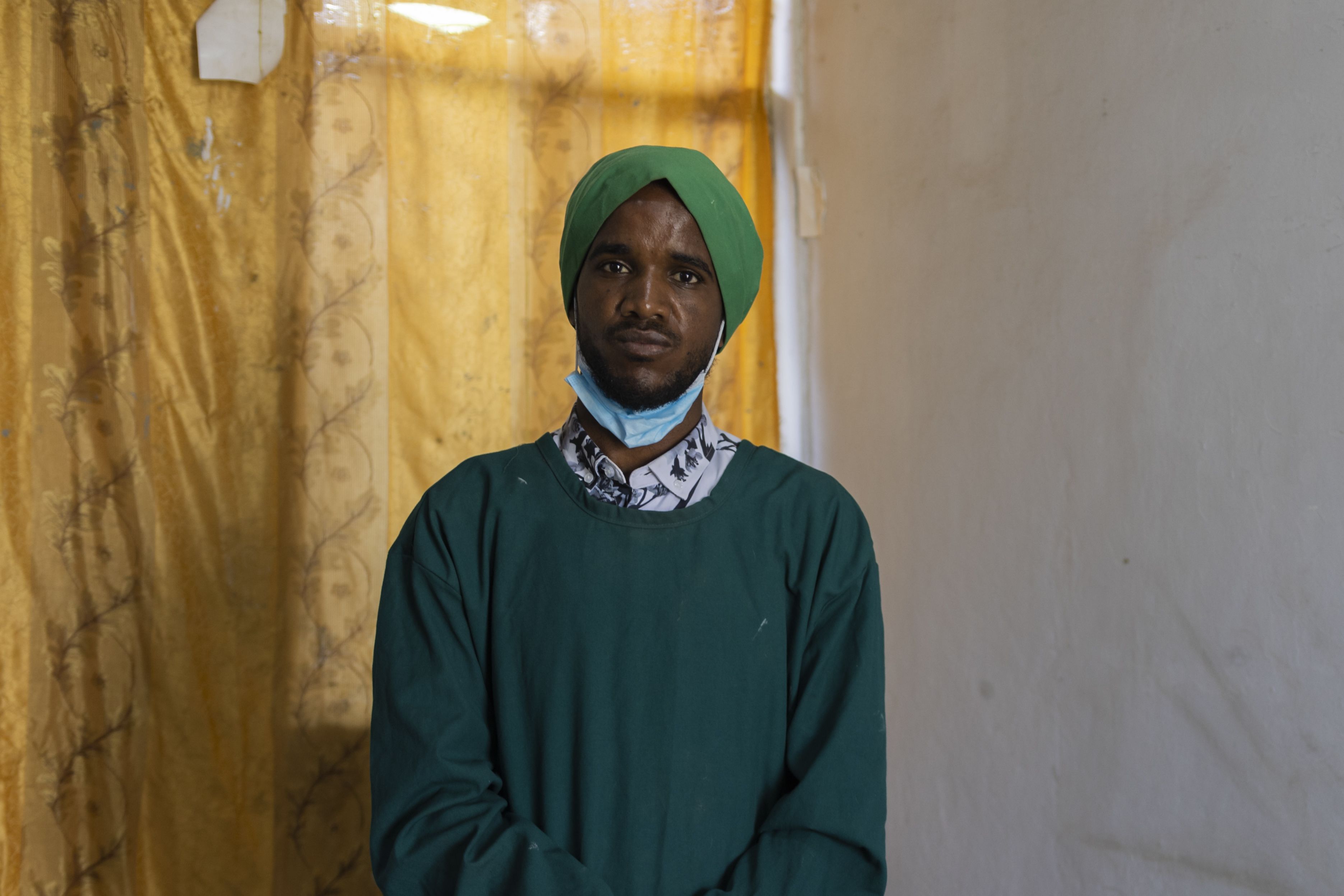
CHW and TT surgeon, Liben Omer Farah, 30 goes door-to-door scouring for TT patients. Photo credit: Meseret Argaw
CHW and TT surgeon, Liben Omer Farah, 30 goes door-to-door scouring for TT patients. Photo credit: Meseret Argaw
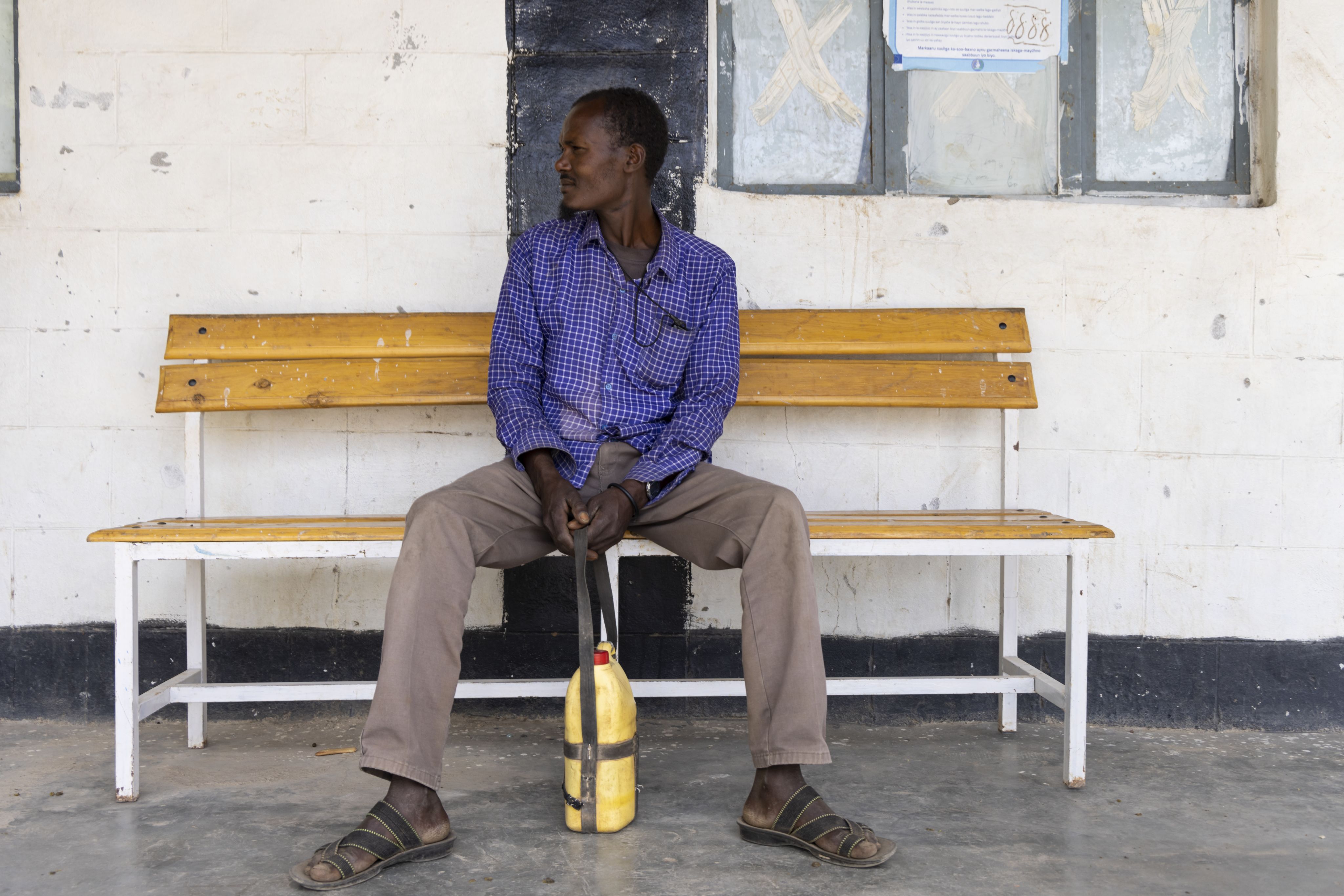
Feysel anxiously waits at the Darimi Health Center for his TT surgery. Although nervous, he is happy to finally receive his surgery and excited to return to his farm without the weight of his disease looming over him. Photo credit: Meseret Argaw
Feysel anxiously waits at the Darimi Health Center for his TT surgery. Although nervous, he is happy to finally receive his surgery and excited to return to his farm without the weight of his disease looming over him. Photo credit: Meseret Argaw
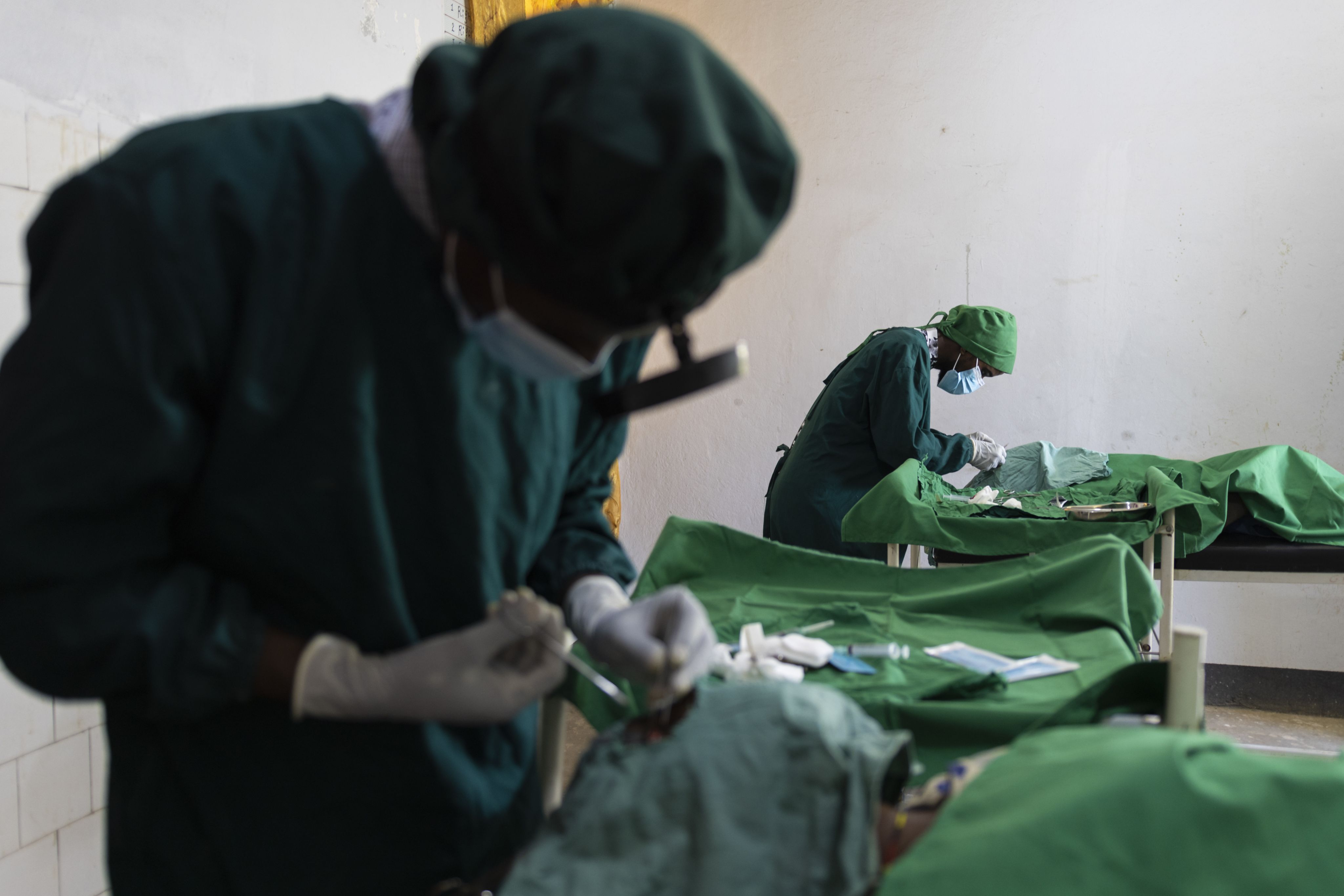
Ahmed Yusuf Egge prepares for a TT surgery in Darimi Health center. Photo credit: Meseret Argaw
Ahmed Yusuf Egge prepares for a TT surgery in Darimi Health center. Photo credit: Meseret Argaw
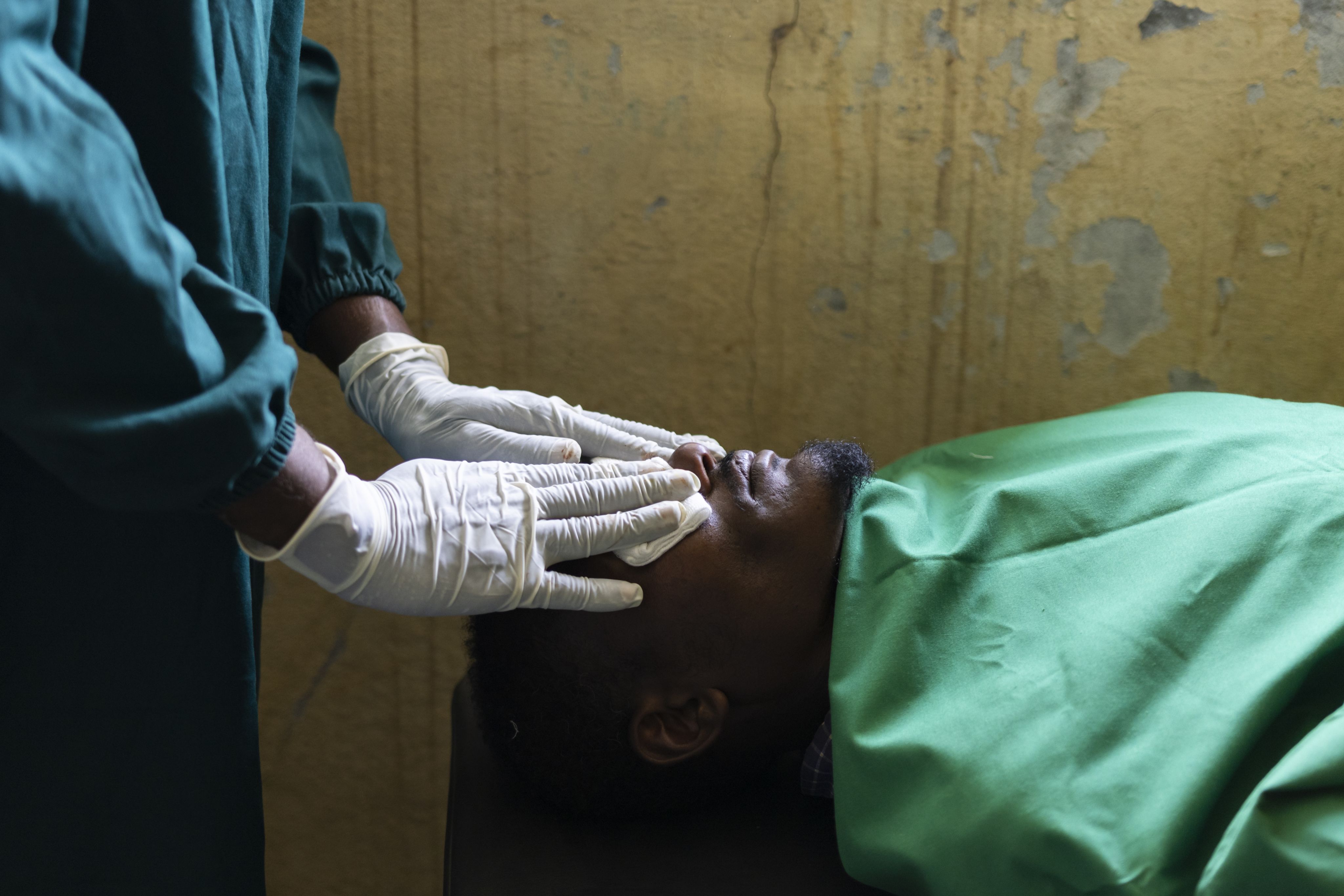
Feysel finishes his bilateral TT surgery performed by Ahmed Yusuf Egge. His recovery will be fast, around 1-2 weeks, when his sutures are removed, and a return to normal activity is permitted. Photo credit: Meseret Argaw
Feysel finishes his bilateral TT surgery performed by Ahmed Yusuf Egge. His recovery will be fast, around 1-2 weeks, when his sutures are removed, and a return to normal activity is permitted. Photo credit: Meseret Argaw
One of the patients is Feysel. Spurred by his trust in Ahmed and the positive feedback from family and neighbors, Feysel eagerly assembled by the health center, awaiting his turn alongside the numerous other members of his village. Feysel’s eagerness towards his surgery marks the noteworthy attitude change that Ahmed has seen.
Once met with distrust and skepticism, health workers like Liben and Amhed are now finding patients willing to consider the idea of TT surgeries. Fed by positive reinforcement and trust, patients like Feysel are actively seeking the surgery, rather than rejecting it.
And, Ethiopia has made tremendous progress in its effort to eliminate trachoma. Compared to over 40% active infections across the country in 2004, many regions like Somali are on the brink of lowering trachoma prevalence to below 5%, signaling the coveted end to preventative mass drug administrations, and invigorated focus on treating the surgery backlog.
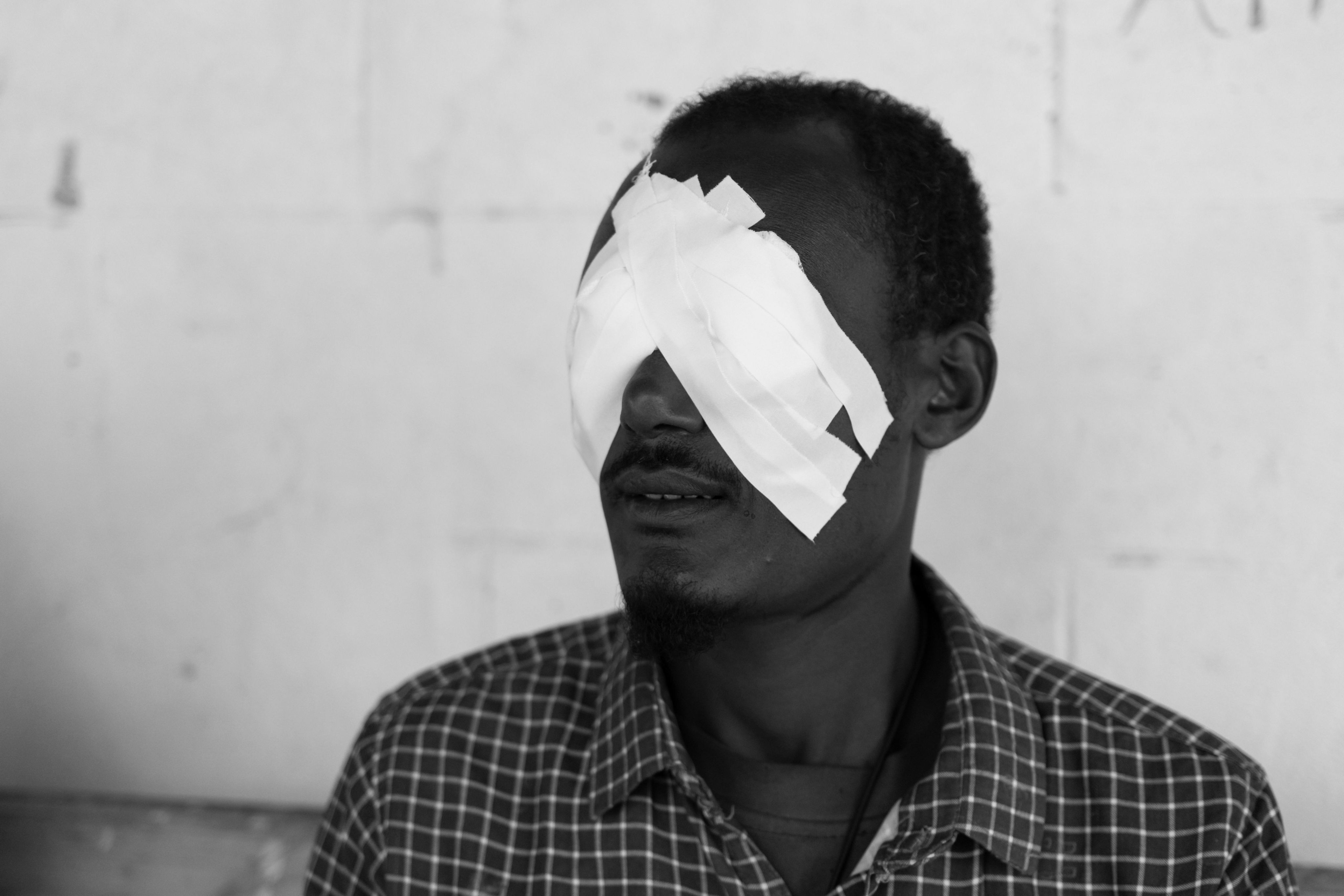
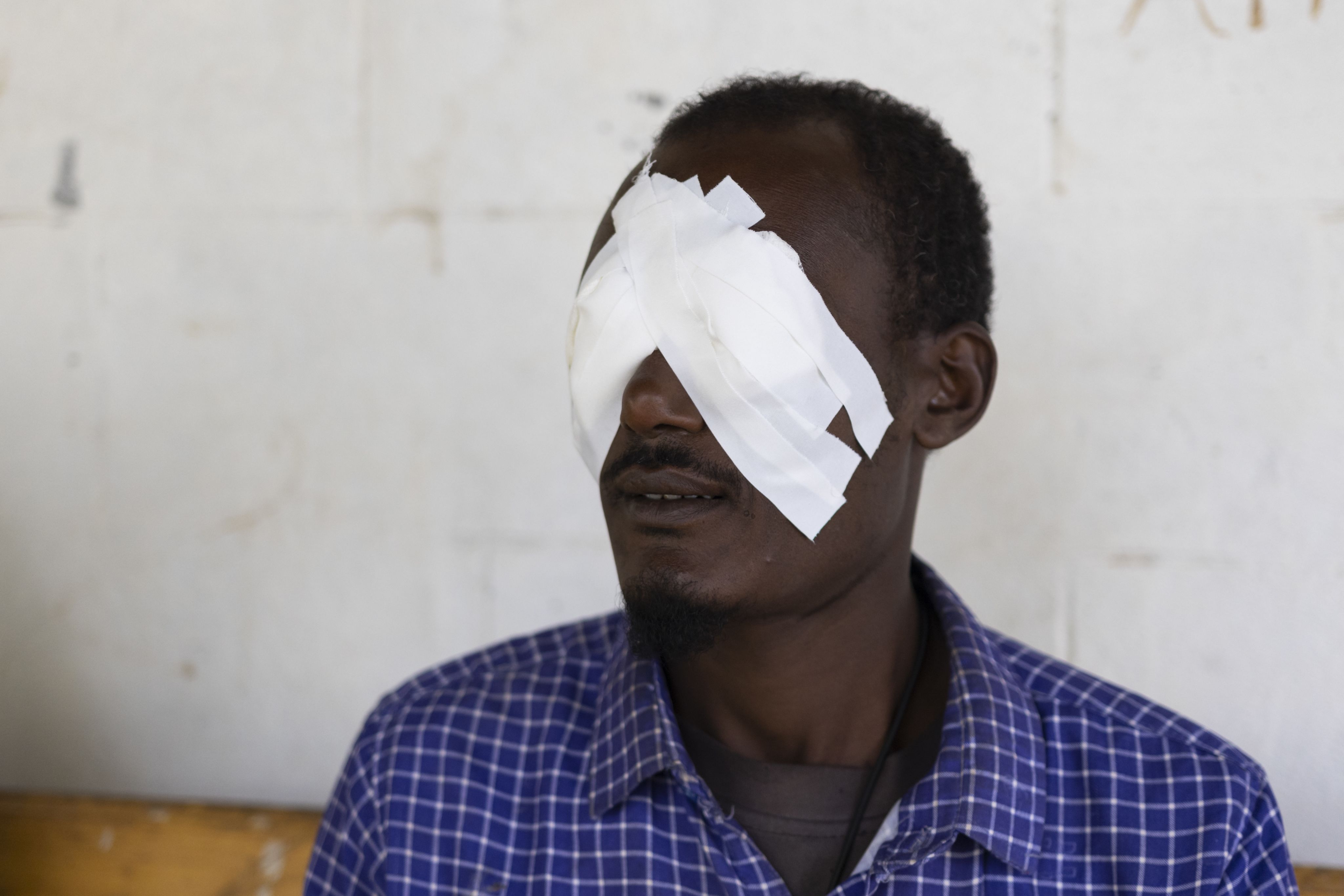
Through the ARISE Fund, END Fund Ethiopian partners like Amref Africa have been able to confirm cases and provide necessary surgeries so that patients like Feysel can return pain-free to their daily activities.
The Somali region is currently surveying to determine the need to continue preventative drug campaigns. Following the World Health Organization recommendations, trachoma prevalence in children must drop below the prescribed 5% before preventive medicine can be stopped.
The work in Somali supported by the ARISE Fund builds on other efforts in Ethiopia. The END Fund’s partners in Ethiopia, supported by Leona M. and Harry B. Helmsley Charitable Trust, Legatum, and the Children's Investment Fund Foundation, performed a total of 81,391 TT surgeries - uncovered by over 8.2 million screenings - over recent years across seven regions, including in the Somali Region.
